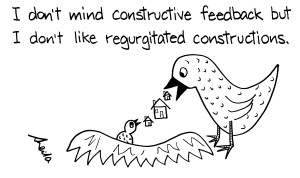 Staff engagement is a broad topic and a major problem. It is stated each year there are over 39 million searches on the keywords “employee engagement.” With such a level of interest there must be a fundamental reason why. The Gallup Management Journal (2012) claiming less than 50% of staff are engaged. Essentially, they claim staff have generally ‘checked out, sleepwalking through their workday, putting time but not passion into their work’.
Staff engagement is a broad topic and a major problem. It is stated each year there are over 39 million searches on the keywords “employee engagement.” With such a level of interest there must be a fundamental reason why. The Gallup Management Journal (2012) claiming less than 50% of staff are engaged. Essentially, they claim staff have generally ‘checked out, sleepwalking through their workday, putting time but not passion into their work’.
One of the contributors to staff disengagement is when it is clear that the boss has noticed an aspect of their performance worth noting, however fails to mention it to them until the Performance Appraisal/Review time. Research indicates staff are more motivated to improve their job performance when the feedback source is perceived to be credible, and delivered in a considerate and timely manner. The routine/mandated six or twelve monthly performance appraisal escalates the stress levels for all involved. The staff feel oppressed, the reviewers feel burdened and the organisational guidelines are overly prescriptive, lacking flexibility and poorly communicated. This process is not perceived as useful and results in negative reactions and is generally not associated with a recipient’s willingness to change his or her behaviour.
How many of us have experienced reviewers simply cutting and pasting what was on last year’s performance appraisal into this year’s, with minimal if any changes. Or worse; no thought to how the report was completed the previous year and what was needed to improve?
The current performance appraisal system is not working and the time for change is now. The revolution is overdue! Performance appraisals, reviews and feedback need to change. Deloitte’s Global Human Capital Trends (2015) denotes that over 80% of performance feedback and development is less than adequate. Survey Analytics have found that 90% of leaders think an engagement strategy positively impacts business success, but only 25% have a strategy to change. With so many statistics supporting a change why haven’t organisations focussed on doing it? Is it a case of an organisation running a 21st-century business with 20th-century workplace practices and programs?
Evidence supports most staff want tangible feedback to help them improve. Removing forced rankings and shifting from evaluation to development is a starting point for this change. To continue the revolution and gain synergy is the need is to encourage open conversations and remove the stress associated with performance appraisals. The answer lies with providing professional development, methodologies and practice.
